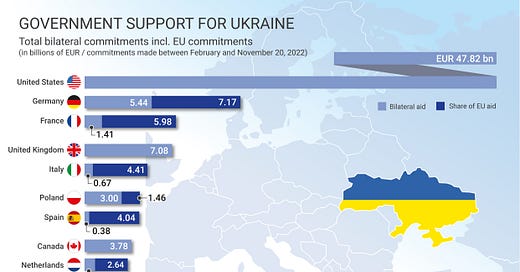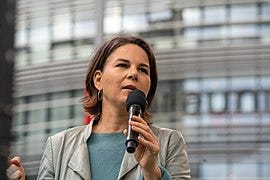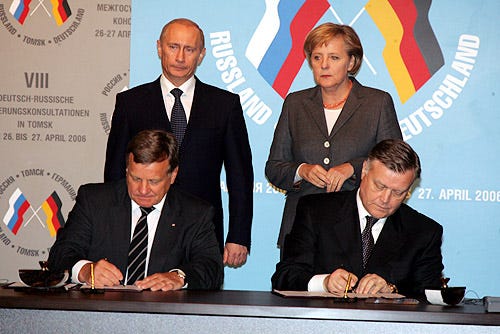Jul 8: Patrick Wintour, Germany did not listen to warnings about Russia, says Annalena Baerbock
As published in The Guardian on July 6, 2023
Germany did not listen to warnings about Russia, says Annalena Baerbock
By Patrick Wintour, The Guardian, July 6, 2023
The Russian invasion of Ukraine has changed how Germany views security and made Berlin realise it failed to listen to eastern European allies who warned of threats from Moscow, Annalena Baerbock, the German foreign minister, has written in the Guardian.
In a frank admission about the flaws in postwar German foreign policy, she said countries in eastern Europe had been right to warn Germany that hoping for the best in dealing with the threats from an autocratic Russia was not an adequate response. For too long, she said, Germany had resorted to “chequebook diplomacy”, or a belief that political and economic interaction would lead Russia to a democratic path.
“We know that for the foreseeable future, President Putin’s Russia will remain a threat to peace and security on our continent and that we have to organise our security against Putin’s Russia, not with it,” she said.
Writing before the Nato summit in Vilnius and soon after the publication of a new German national security strategy, she intertwined Germany’s security interests with those of eastern Europe, saying: “We Germans will never forget that we owe our freedom in a reunited country also to our allies and our eastern neighbours. Just as they were there for us, we will be there for them now, because the security of eastern Europe is Germany’s security.”
There have been doubts about whether Germany could take a military leadership role in Europe given its history, but Baerbock said the Ukraine war had forced Germany, sometimes to its own surprise, to reassess its role and responsibilities.
“After the horrors of the second world war, unleashed by Germans, our country’s foreign policy was driven by the premise that war should never again emanate from German soil.”
But she was clear that that had changed: “Only two years ago, the idea of Germany delivering tanks, air-defence systems and howitzers to a war zone would have seemed far-fetched, to say the least. Today, Germany is one of the leading arms suppliers for Ukraine’s self-defence.”
She added: “Russia’s war of aggression has marked a rupture in the world. For my country, it has opened a new chapter, redefining how we seek to promote peace, freedom and sustainability in this world: as a partner that embraces its leadership.”
Baerbock’s efforts since her appointment to reassure eastern Europe have been hampered by a Polish government intent on seeking reparations for Germany’s wartime occupation of Poland. Relations with Hungary have suffered as a result of German criticism of Hungary’s democratic backsliding. But there is a general admission by France and Germany that the axis of a new geopolitical Europe will be closer to the east.
In her article, Baerlock also pointed to the speed with which Germany had shed its economic links with Russia, noting that the contribution of Russian fossil fuel to the current German energy mix was “zero”.
Although Germany’s new security strategy, modelled conceptually on Britain’s integrated defence review, has been criticised for fudging some issues, including the need for a national security council, the authors had to deal with different ideologies and departmental interests from a coalition government. One author confided: “Behind every sentence, there is a story.”
The strategy came under most criticism for deferring a debate on how to handle China to a later paper, and differences remain about the best way to implement the mantra that Germany needed to “de-risk” rather than “de-couple” its economic relations with China.
Olaf Scholz, the German chancellor, drew criticism last week when he said de-risking was primarily down to the choices of companies and not down to governments.
“De-risking is not a short-term project as it is mainly about decisions that need to be taken by companies,” he told reporters after a two-day EU summit in Brussels. He said companies too often had taken major risks as they chose to rely on only one supplier, no matter where it was located.





